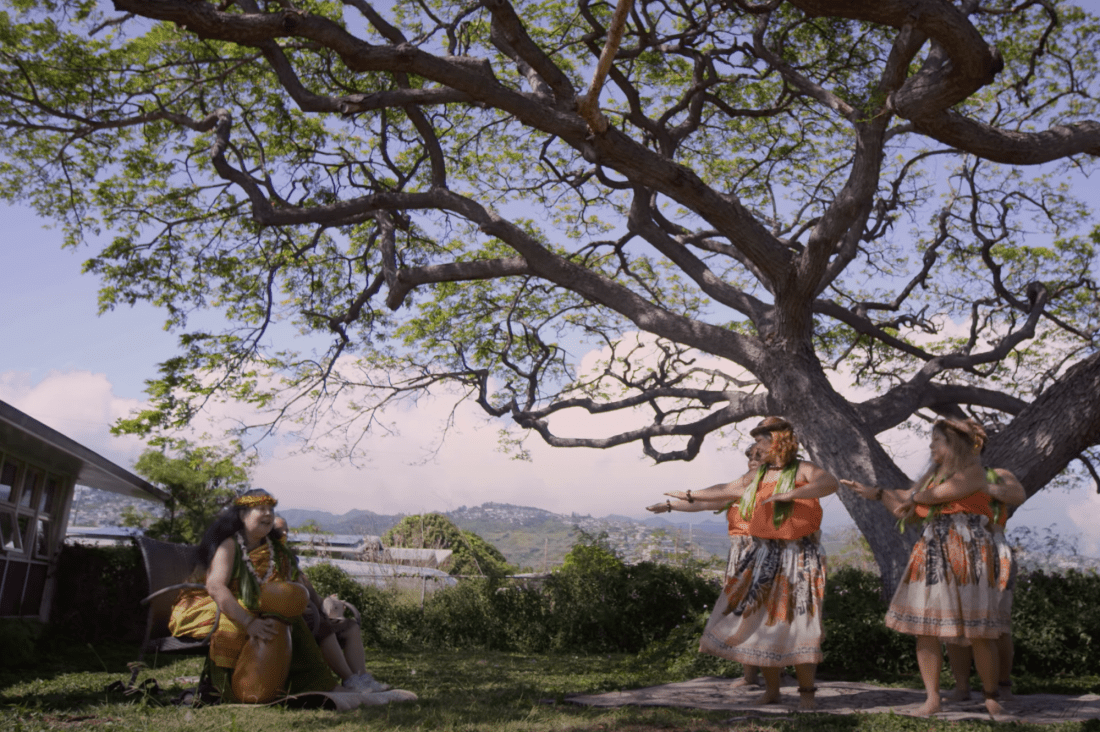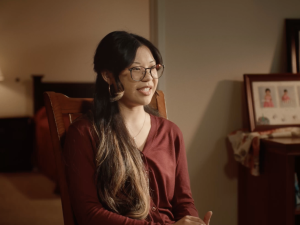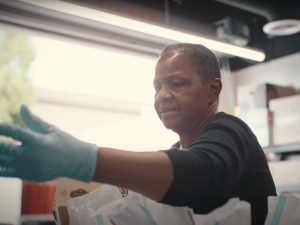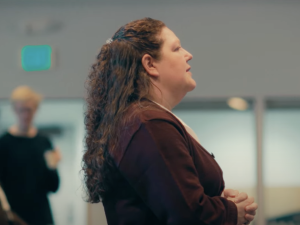Hula, gardening, harvesting, studying the Hawaiian language and learning the history of their ancestors—it’s all part of the addiction recovery process for women at The Salvation Army in Honolulu, Hawaii.
By fusing addiction recovery with Native Hawaiian cultural values and traditions, the women in the Ola Kino Maika`i program have been able to find a deeper, more personal connection to their individual process of recovery.
Enjoy a snapshot of this fascinating program in Honolulu.
Below is a transcript of the video edited for readability.
Makana: I have three girls and one boy. My oldest, she’s 12. And then I have a 10 year old, and then I have a 4 and a 2 year old.
Kamea: When I got out of jail, I found out I was pregnant. I thought it was going to be enough for me not to use drugs, but it wasn’t. It wasn’t. I ended up relapsing.
U’i: This treatment is my third residential, but my sixth treatment all together. I’ve been to jail like nine times.
Candace Pang (Executive Director, Family Treatment Services): Women’s Way is our substance use residential-level treatment program.
Most of our clients that come in will come in either pregnant or with a young child under three.
We understand some of the special needs that women have, that are trying to get clean and sober, paying attention to their mental health needs and their importance on relationships.
Kamea: I grew up in a valley called Moanalua. That’s my dad’s family land, and everybody in that valley, till this day, is related.
Candace Pang: We’re really trying to provide a healthy culture for women to experience.
The beautiful thing about the Native Hawaiian culture is the importance of the keiki, the children, and the importance of family and the ancestors, too.
So there’s a very deep history and a deep, rich connection.
So it just rings really true for Family Treatment Services, where motherhood is so important.
Those are all wonderful parts of the Native Hawaiian culture that are a piece of our substance use treatment programming here, too.
Kate Kahoano (Program Coordinator, Ola Kino Maika’i): When you attach to your culture, you attach to something bigger than yourself.
Candace Pang: The Ola Kino Maika’i program has been just an evolving part of the cultural programming that we have here.
Kate Kahoano: Depending on the day, they have different cultural practices. On Tuesdays, they enjoy Hula. The disease of addiction, it can be very hard on the body. It can age you in certain ways. Hula has a variety of ways that we kind of exercise, we work on our breathing, to slowly start to heal your body.
Kamea: My sisters that are older than me would dance with my auntie, and so we all would dance Hula as a family.
Candace Pang: We get feedback from the women about how important this is to get reconnected to their cultural roots again.
Kamea: They don’t teach that in our schools in Hawaii. They don’t teach Hawaiian language. They don’t teach a lot of stuff about Hawaii.
Candace Pang: To see the dances that they do, I always feel very touched and very emotional about that.
Kamea: I am thankful and grateful for my struggles that I’ve had to deal with, because now I really appreciate the small things in life.
Kate Kahoano: When the women have the opportunity to care for the land, we very much want it to be part of their parenting style. And so we very much talk about it as if it was part of our ‘ohana.
Every single part of the plant has some sort of significance and some sort of use. Whether you eat it or you replant it, none of it is to be wasted. There’s a makua, a parent plant. We take the makua; we slice off the top part that can be replanted. They peel it so that the parts that have the root, or the lepo, the dirt on it, that is not tasty, will be shaved away. And then they hand that to another sister, who then slices it a certain size so that it can be fed through a grinder. And so we put it in the Ziploc bags, and then we freeze them. And then we mash it up a little bit. And that can become our poi.
U’i: Because I’ve been to so many different treatments, like, it’s…it’s a lot different, like…you can tell that people here, who work here, they care about you. It’s not like other treatments.
Kamea: A key thing that they teach us here is that we’re powerless over people, places, and things, and the only people that we can control is ourselves. And the only people that we can change is ourselves.
Makana: I want to really focus on myself so I can do it right this time around.
Coming here, I’ve learned to build back up relationships that I have strained in the past, especially with my mom. I used to make her feel bad and use her for money.
I always used to complain to God like, “Why is he putting me through all of this?” But now I’m like, man, that was like all me. I pushed God away.
Kamea: A lot of my negativity came from my thought of not being good enough. And today I can say that I am good enough and I am worth it, and…and I am a good mom, and I can make a difference.
Kate Kahoano: My ultimate hope is that we will disturb a cycle so much so, that for the rest of that family’s legacy, they can be free.
Do Good:
- See more videos like this in our video feed.
- Are you a Do Gooder, someone who cares about bringing goodness into the life of your family and community? Subscribe to The Do Gooders Podcast to be inspired by those doing good and find tangible tips for simple actions you can take today.
- Did you know The Salvation Army served more than 23 million Americans last year fighting hunger, homelessness, substance abuse and more—all in a fight for good? Where can you help? Take our quiz to find your cause and learn how you can join in today.











